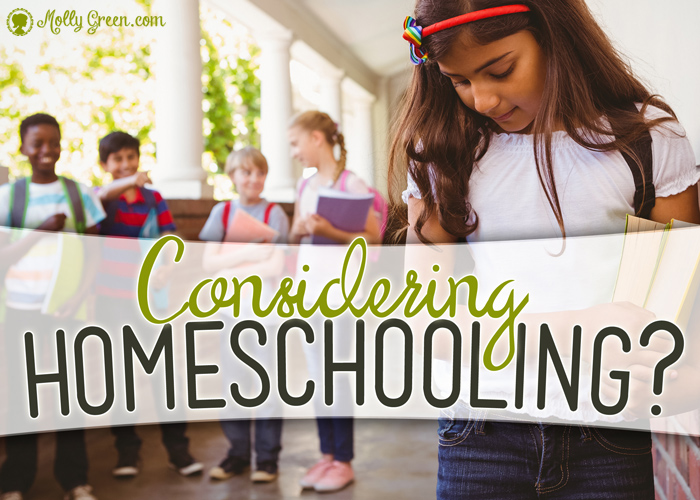By Bonnie Rose Hudson
Amid the news of public schools closing and disturbing headlines concerning parental rights, many parents are wondering if homeschooling is an option for their family. What do you do when you lose access to your neighborhood schools or become frustrated with the worsening academic and social atmosphere found there?
A report compiled by the National Governors Association and its partners states: “Four decades ago America had the best high school graduation rate in the world, but by 2006 it had slipped to 18th out of 24 industrialized countries.”1
Concern over parents losing their right to be involved in their child’s education is a growing one.
At Deerfield High School, in Deerfield, Illinois, 14-year-old freshmen were ordered to attend a seminar after signing “a confidentiality agreement promising not to tell their parents.”2 A lawsuit brought by parents in Massachusetts concerning controversial material being taught to their elementary-aged students resulted in a ruling by U.S. District Judge Mark L. Wolf that “essentially adopted the reasoning in a brief … who said, ‘the rights of religious freedom and parental control over the upbringing of children … would undermine teaching and learning.’”3
The judge went on to say that the parents “may send their children to a private school … [or] may also educate their children at home.”4
So who homeschools, how do they do it, and what are the results?
Who Homeschools?
There is no one mold that all homeschooling families fit into. Research is showing that people from varied ethnic and religious backgrounds are choosing the homeschooling option. According to Dr. Brian D. Ray of the National Home Education Research Institute, “A demographically wide variety of people homeschool—these are atheists, Christians, and Mormons; conservatives, libertarians, and liberals; low-, middle-, and high-income families; black, Hispanic, and white.” In addition, Dr. Ray states that “homeschooling is quickly growing in popularity among minorities.
About 15% of homeschool families are non-white/nonHispanic (i.e., not white/Anglo).”5
In a separate report, Dr. Ray reports, “There were an estimated 2.04 million (2,040,000) K to 12 homeschool students in the United States in the spring of 2010.”6
Another indicator of the growth in popularity of the homeschool option is the fact that many companies are reaching out to serve the homeschooling market.
Pearson, co-owner of easily recognizable brands such as the Penguin Random House,7 and owner of imprints including Scott Foresman and Prentice Hall,8 is reaching out to homeschooling families through curriculum and resources available through Pearson Homeschool. The 2008-2009 Carnegie Hall National High School Choral Festival chose only four choirs out of more than eighty applicants; the North Jersey Homeschool Association Chorale was one of those selected.9 Walt Disney World Resort in Florida is reaching out to homeschoolers through Disney Homeschool Days.10 These companies and many others are recognizing significant growth in this marketplace.
Why Homeschool?
Every family has their own unique combination of reasons to homeschool. Some of the common reasons include the opportunity to offer their child a better-quality education than the public schools; an objection to what is being taught or left out of conventional educational curriculum; a safer learning environment with respect to bullying, substance abuse, and inappropriate sexual situations; the strengthening of family relationships through more shared experiences; and the freedom to tailor instruction to best serve their children’s needs.
Another factor that leads parents to choose the homeschooling option is a desire to share their worldviews with their children, rather than subjecting their children to constant exposure to worldviews and values that may run contrary to their own.
What Are The Academic Benefits, And What About College?
Ian Slatter of the Home School Legal Defense Association (HSLDA) points to a nationwide study of more than 11,000 homeschooled students which showed that homeschooled children score, on average, 37 percentile points higher than public school students on standardized achievement tests.11
Colleges are taking notice. Princeton University’s website includes a page of “Tips for Home School Students.” The page states: “Princeton welcomes applications from home-schooled students …. Among the homeschooled students admitted in recent years was a student who graduated as valedictorian of the Class of 2002.”12 A Wall Street Journal article from February 11, 2000, was quoted by HSLDA as saying, “Stanford University… last fall accepted 27% of homeschooled applicants—nearly double its overall acceptance rate.” Jon Reider, Stanford’s Senior Associate Director of Admissions at the time13 said, “Homeschoolers bring certain skills—motivation, curiosity, the capacity to be responsible for their education—that high schools don’t induce very well.”14
What Qualifications Do I Need In Order To Homeschool?
The nationwide study conducted by Dr. Ray also showed that neither household income nor whether one parent had ever been a certified teacher made a noticeable impact on their children’s academic success.
A difference between families where neither parent had a college degree and families where both parents had a college degree was noted, with the children in the former group ranking in the 83rd percentile on the test scores while children in the latter group ranked in the 90th percentile. However, both groups scored far above the 50th percentile average scored by public school students.15
Dr. Ray reports that “homeschool students score above average on achievement tests regardless of their parents’ level of formal education or their family’s household income.” Parents of homeschooling families include “parents with Ph.D.s, GEDs, and no high-school diplomas.”16
What About The Subjects I’m Not Good At?
Resources abound to help parents teach the subjects they are unsure of. Homeschool co-ops, i.e., groups of homeschooling parents who meet all over the country, can provide ways for a parent who excels in a subject to share his expertise by teaching a particular subject to small groups of homeschoolers. Digital and online resources, many of them free or available at low cost, help families tackle almost any subject together.
What Are The Benefits To My Family And My Community?
Research has shown that homeschooled children are showing improved leadership skills and family cohesion.17 Research is also showing that adults who were homeschooled as children “participate in local community service more frequently than does the general population, vote and attend public meetings more frequently than the general population, … go to and succeed at college at an equal or higher rate than the general population, [and] internalize the values and beliefs of their parents at a very high rate.”18
While standardized test scores show achievement gaps between groups of publicly schooled children based on their gender, their family’s income, and their parent’s education, homeschooling appears to be eliminating those inequities.19
In addition, the difference in the cost of homeschooling a child is significantly less than the cost to taxpayers who provide for the public school system. “Children can be educated to a standard significantly above the average public school student at a fraction of the cost—the average spent by participants in the … [nationwide study conducted by Dr. Ray] was about $500 per child per year as opposed to the public school average of nearly $10,000 per child per year.”20
What About Socialization?
Parents want their children to be able to cope with the world around them and respond appropriately to it. The question then becomes, “Who is better suited to teach my children the best way to respond to the world—a host of teachers and children who will expose my children to any number of dangerous and confusing situations with no support or guidance to show my children how to deal with them or the child’s parent?”
As a parent, do you want to teach your children by example how to properly interact with family, friends, neighbors, other families, and the dozens of people you encounter on a daily or weekly basis, or do you want your children to watch how other children respond to life and learn to imitate their responses?
Citing a comparison study by David J. Francis, Psy.D., and Timothy Z. Keith, Ph.D., the National Home Education Research Institute states: “The higher rating scores … strongly suggest that homeschooled children in this study were not harmed socially due to their home education. On the contrary, these data suggest homeschooled children may have benefited as a result of their education at home in terms of displaying higher overall social skills and self- control than the conventionally educated group.”21
Where Do I Begin?
We have a 12-Step Guide specifically on how to start homeschooling, and we strongly recommend starting there! Step 1 in the 12-Step Guide is to spend some time familiarizing yourself with the legal requirements of your state. Be sure to also familiarize yourself with the growing number of organizations and support groups that have valuable resources, tips, and advice to share. HSLDA maintains a list of legal requirements, organizations, and additional helpful information, all organized by state. These lists are available free of charge at www.hslda.org[www.hslda.org].
Another incredibly helpful resource, The Old Schoolhouse Magazine, is the largest homeschooling magazine on the market. A monthly digital publication full of resources; curriculum reviews; teaching tips; advice from parents, teachers, and veteran homeschoolers; and more, the magazine is available absolutely free.
Is Homeschooling For Me?
Each family must make that decision for themselves. There are many factors to consider. But research shows you shouldn’t disqualify yourself too quickly without examining the facts personally. Homeschooling could very well be a viable and beneficial option for your family.
Bonnie Rose Hudson lives in central Pennsylvania with her mother and sister. She loves being a part of SchoolhouseTeachers.com and The Old Schoolhouse® Magazine, where her love of God, history, and writing all work together. She invites you to stop by her website http://writebonnierose.com/.
Endnotes:
- corestandards.org/assets/0812BENCHMARKING.pdf
- wnd.com/2007/03/40598/
- Ibid.
- Ibid.
- nheri.org/research/research-facts-on-homeschooling.html
- nheri.org/HomeschoolPopulationReport2010.pdf
- http://www.pearson.com/about-us/penguin-random-house.html
- pearson.com/about-us/education.html
- carnegiehall.org/honor/education/nhscf.html and http://www.carnegiehall.org/honor/education/nhscf_bios.html
- http://www.homeschool-curriculum-savings.com/disney-homeschool-days-2014.html
- hslda.org/docs/news/200908100.asp and http://www.hslda.org/docs/study/ray2009/default.asp
- princeton.edu/admission/applyingforadmission/tips_for_home_schooled
- linkedin.com/pub/jon-reider/11/b4b/6b2
- hslda.org/docs/nche/000002/00000234.asp
- hslda.org/docs/news/200908100.asp
- nheri.org/research/research-facts-on-homeschooling.html
- Ibid.
- Ibid.
- hslda.org/docs/news/200908100.asp
- Ibid.
- nheri.org/home-school-researcher/volume-16-issue-1/social-skills-a-comparison-study.html
Copyright, 2014. Used with permission. All rights reserved by author. Originally appeared in The Old Schoolhouse® Magazine, the family education magazine, July/August 2014.







